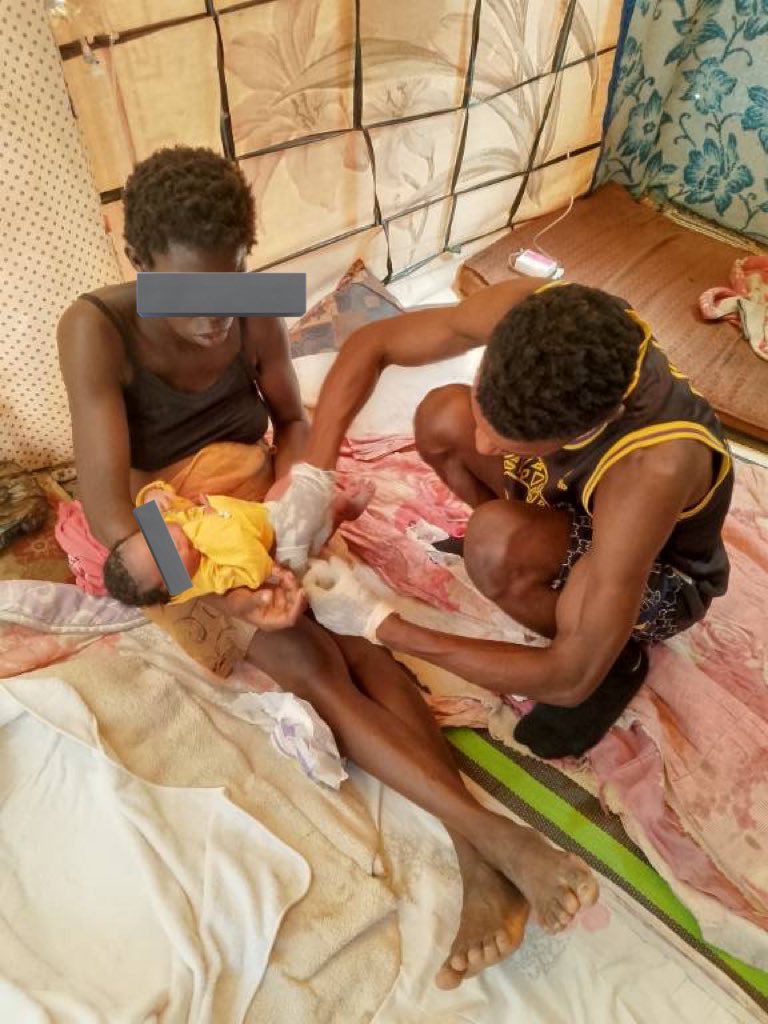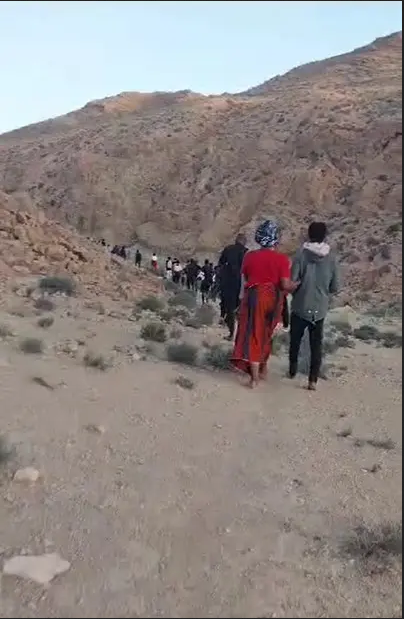Many migrant women in Tunisia have been victims of sexual assault, according to the organizations that support them. These assaults often result in unwanted pregnancies, for which the migrants have no medical or legal assistance.
Life has reportedly become hell for migrants in Tunisia, since February 2023, when President Kaïs Saïed made xenophobic comments targeting sub-Saharan migrants. Deprived of work and housing, most migrants live in abject poverty, on the streets, or in one of the camps in the olive groves around the city of Sfax.
The situation takes on another dimension for migrant women. They are not only deprived of sanitary products, contraception, or gynecological monitoring, but they are also frequently victims of sexual assault.
Lava*, 23, is from Sierra Leone. She explains she has been raped twice since arriving in Tunisia in May 2023. The first time was in September 2024, when the young woman was trying to board a boat on the Tunisian coast to reach Europe. Tunisian police officers or members of the National Guard wearing the national uniform stopped the group of migrants and seized the boat. Lava says she was raped by the men and then fell unconscious. Other migrants took her back to one of the camps in Sfax.
The young woman was raped the second time in mid-February while she was in Tunis, hoping to find work. "I was attacked by three men in the street. They raped and beat me. My friends found me lying on the sidewalk and crying," she said.
Many women like Lava try to leave the camps and settle in the city to earn some money and improve their situation. Yet "they are forced to stay on the streets and beg because they have no other means of supporting themselves. Most are accompanied by children or babies," said Romdhane Ben Amor, spokesperson for the Tunisian Forum for Economic and Social Rights (FTDES).
Read AlsoEU asks Tunisia to investigate migrant abuse claims
Silence about the attacks
Lava returned to the camps in Sfax after being raped, and she didn't even think about talking about her ordeal. Rape remains shameful for the women who are victims within migrant communities.
"I didn't say anything to my friends when they came to help me after my second rape. I just said I'd been beaten," said Lava. "You don't tell anyone here if you've been raped; you just cry at night."
The only person Lava spoke to about her attack was Dr. Ibrahim. The Sierra Leonean is an anesthesiologist by training and the only doctor present in these camps. The medical practitioner is a candidate for migration himself, and he treats the camp residents with the limited resources available.

Dr Ibrahim says he feels completely helpless concerning the sexual assaults of migrant women. "The only thing I can do is tell these women that they must accept their fate," he admits. "I'm certainly not going to tell them to talk about it," said the doctor, confirming the silence surrounding the assaults.
The International Organization for Migration (IOM) told InfoMigrants that "migrant women in Tunisia can access family planning through institutional partners."
The UN agency also said that it strives to "address the specific needs and vulnerabilities of migrants, particularly women and girls, while promoting gender equality and empowerment."
Read AlsoSeveral migrants in Tunisia die from carbon monoxide poisoning in Sfax olive groves
'Most pregnant women are pregnant due to rape'
Rape is a taboo subject within migrant communities, but the migrants and the organizations that assist them know that it exists. The consequences are visible. Lava, the young Sierra Leonean, believes "most pregnant women in the camps are pregnant due to rape". Dr. Ibrahim also believes most women in the camps have already been sexually assaulted.
"Tunisian men consider us 'sex toys,'" said Lava. "Some try to pay us to sleep with them, while others simply force us."
Some of the victims of the assaults become pregnant and must carry their pregnancies to term. "Abortion is illegal here, and women have no access to any contraception. Even condoms are inaccessible because they are too expensive for us," said Dr. Ibrahim.
Abortion is in theory legal in Tunisia until the end of the first trimester of the pregnancy. Yet in practice, there are shortages in equipment and medication, reluctance on the part of medical professionals, and social pressure on women.
No medical or police assistance
In a country where the healthcare system is in disarray, even for the local population, and where discrimination against migrants is widespread, migrant women must endure their pregnancies without follow-up care. They also often give birth without medical assistance. "Access to healthcare facilities is only available for these women in the case of emergencies," said Ben Amor.
The official confirmed he was aware of the scale of attacks against migrant women in Tunisia and condemned, "the Tunisian authorities [which] do not allow associations specializing in health or reproductive health to work freely with migrant populations."
It is also impossible for these women to file a complaint after an attack, "which would mean being threatened with deportation towards the borders," said Ben Amor. After being raped, Lava confirmed she didn'teven consider this option for fear of being deported to Algeria or Libya.
Read Also'Libyans, armed and hooded, picked us up in the desert' – testimony of a Guinean in Tunisia
Fear of Deportation
Deportation of migrants to neighboring countries remains common. A report by a collective of researchers revealed in early February that members of the Tunisian National Guard were even selling migrants to Libyan militias at the border. InfoMigrants also received several reports of money transfers at the Libyan border in exchange for migrants.

Once on Libyan soil, the migrants are held in desert prisons for a few days. They are then sent to official detention centers run by the Department for Combating Illegal Migration (DCIM), formally attached to the Libyan Ministry of the Interior.
The "sales" of migrants at the border serve as the basis for a second transaction later carried out by Libyan jailers: demanding a ransom from the prisoners' families. Libyan detention centers are notorious as places where militias torture sub-Saharan Africans and extort their families in exchange for their release.
*Name has been changed.
